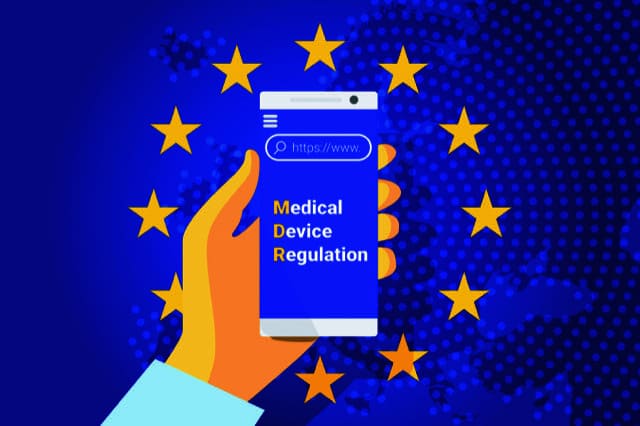
A recent announcement of a partnership between UK universities and a leading medtech organisation to fast-track innovation in medical and healthcare technologies seems like a welcome and courageous development.
The five-year agreement will see the Medical Device Manufacturing Centre (MDMC) in Edinburgh collaborate with InnoScot, to help make new ideas and innovations from healthcare professionals a reality.
The strategic relationship will identify new healthcare technologies and the development of prototype medical devices by engaging with clinicians, doctors, nurses and engineering students.
The MDMC is a consortium including Heriot- Watt University, Robert Gordon University and the Universities of Edinburgh and Glasgow that helps small- to medium-sized enterprises (SMEs) to commercialise medical device concepts.
Its staff provide free expert advice on manufacturing engineering, regulatory issues and funding, as well access to its specialist manufacturing facilities at Heriot-Watt.
In normal times, such a project would be hailed as a progressive and entrepreneurial move to consolidate recent gains in a dynamic, expanding sector. But times are far from normal.
While still descending the downslope of a global pandemic, the UK medtech sector has also had to navigate the myriad of uncertainties caused by the war in Ukraine, including record energy prices, global supply chain issues and an increasingly uncertain economy.
Added to that is the growing volume and complexity of ongoing EU regulatory initiatives impacting companies looking to sell to its market.
Siren voices within the sector fear that this regulatory burden alone may threaten the resilience of manufacturers and their products, particularly SMEs that make up 95% of the medtech market. Those seeking to use artificial intelligence (AI) are said to be particularly vulnerable.
A current shortage of experienced staff in so- called ‘notified bodies’ is making compliance with additional new rules particularly challenging.
Since the start of last year, UK manufacturers have been obliged to use an EU-recognised notified body to undertake mandatory, third-party conformity assessments to be able to place a CE mark on medical devices sold in Northern Ireland and the EU.
An approved notified body is an organisation designated by the Medicines and Healthcare products Regulatory Agency (MHRA) to assess whether manufacturers and their devices meet the requirements set out in the Medical Devices Regulations 2002 (SI 2002 No 618, as amended) (UK MDR 2002).
Recently, Shuna Mason, a partner in the life sciences group and head of regulatory at international law firm CMS, warned of a ‘perfect storm’ of increased regulation and decreased availability of certain staff in notified bodies causing a bottleneck in the industry, threatening to stifle innovation and expansion.
“Are we actually going to have to ditch the notified body model and go for a different kind of regulatory structure?” she asked.
SMEs, the lifeblood of the sector, are being affected disproportionately, compared with larger companies, by the requirement to appoint a person responsible for regulatory compliance (PRRC).
Some have found themselves ‘orphaned’ from a notified body perspective because they have decided not to continue under the regulatory system, or because it is uncertain when products will be certified. Others have been unable to find a notified body that has the capacity to review products.
Several have been forced to leave devices on the market under ‘legacy-product transition arrangements’, under which they can make no significant changes in design or intended purpose, thereby restricting innovation.
The most disruptive effect of this, of course, could be on investor behaviour, with some opting to pause their financial input in the sector rather than risk bankrolling products that can’t be licensed.
Irrespective of where you stand politically, there is an irony in EU regulation continuing to have an impact on the growth of a notable UK success story.

Our domestic medtech industry was conspicuous by its determination to pick up the COVID-19 ball and run with it, meeting the twin challenges of innovation and commercialisation head-on. A recent article in The Economist singled out Cambridge as a leading world centre for diagnostics and life sciences.
As a recruitment agency, placing senior executives and scientists in the global medtech industry, virtually all of our focus is now on the so-called golden triangle of Cambridge, Oxford and London.
The sector benefits from significant private equity investment and it continues to attract some of the world’s top talent, people who have substantially more earning power now than they did even three or four years ago.
Current predictions about the economic outlook are unlikely to have an impact on the sector’s performance in any meaningful way. Some generalist investors may look at the economic projections and decide to sit on their money for a while until the fundamentals of the economy appear more favourable.
But subject matter specialists, and those with an appreciation of recent history, are unlikely to be put off.
They will recognise that the best period of growth the UK had was between 1930 and 1938, which seems counter-intuitive because all the newsreel footage was of economic misery here and in the US.
The National government of the early 1930s, led by Ramsay MacDonald, reduced taxes, got out of the way, came off the gold standard and allowed a virtual free flow of currency. As a result, the UK had a boom of 5% and 6% growth. It also provided a lot of high-tech innovation, whereas the US tried to solve everything by government decree.
Until two years ago, growth in diagnostics was incremental and most of it was centred around hospitals. The past two and a half years have given the industry the kind of profile that pushed the growth of penicillin use during the Second World War.
Some companies may yet decide to cut their cost base by making redundancies, but those with a longer-term view will recognise that, when the dust settles, those people will be even more expensive to rehire.
We need political leadership to resolve the regulatory issues and the best way to do that may be to follow Shuna Mason’s suggestion of ditching current arrangements in favour of those that will help meet our commercial, as well as our safety and quality assurance, requirements.
The partnership between MDMC and InnoScot is a bold move and both organisations should be congratulated for showing ambition during challenging times. If history has taught us anything, it is that nothing should stand in the way of progress.




